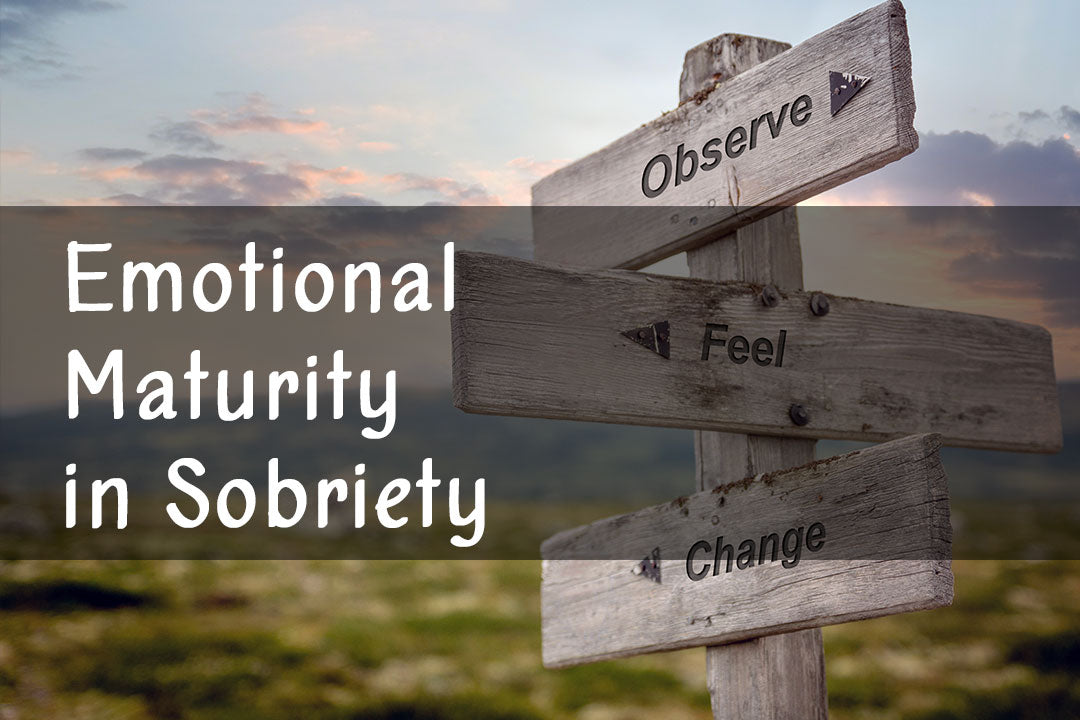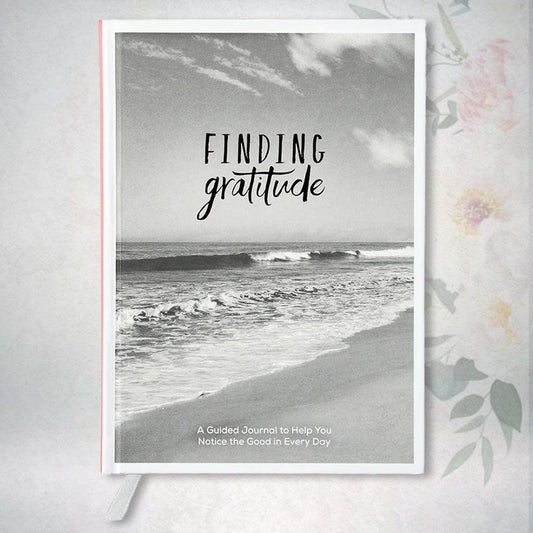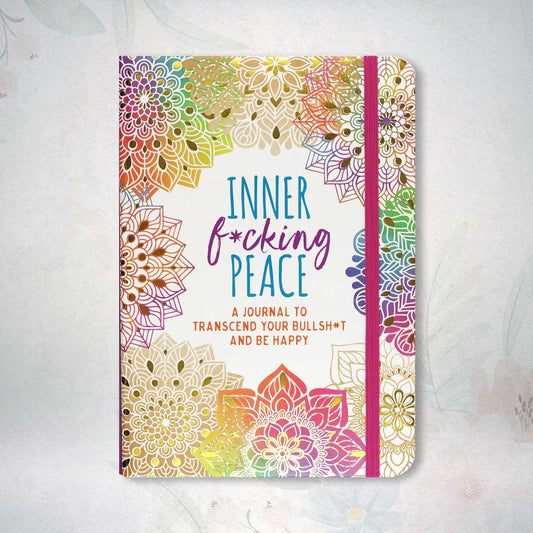
Emotional Maturity in Sobriety
Share
"I think that the oldsters who have put our AA "booze cure" to severe but successful tests still find they often lack emotional sobriety…" ~~Bill W.
In Bill W.'s article in the Grapevine, "The Next Frontier: Emotional Sobriety", he talks about his own struggles with emotional sobriety and depression. In the article, he talks about having to rid ourselves of these crippling dependencies on people, places, things, money, and circumstances for our happiness and peace of mind. These are hard thoughts for alcoholics and drug addicts bent on control and wanting to feed "The Big Hurt" with anything other than God.
I, too, have often struggled with emotional sobriety until, broken again, I talk to my sponsor and am reminded of these dependencies… what to do? We let go and turn our will over to our Higher Power, knowing that He provides everything that we need to be happy, joyous, free, and usefully whole in this new life. Then we resolutely turn our thoughts to others, for our very lives depend on our thoughts of others and how we may meet their needs.
When we can successfully let go of these often selfish and fear based thoughts and dependencies, we start to feel the love of our respective Higher Powers and we are able to give that love much more freely to our fellows. And there begins to be a real sense of serenity.
Don't beat yourselves up if you stumble and fall, let's face it, alkies and druggies are not the portraits of mental health. We came here with a lot of emotional baggage and false beliefs, and those beliefs and baggage take time to be rid of. The important thing is our willingness to grow along those spiritual lines they talk about.
We here at Gift of Recovery are all in recovery and, therefore, in varying states of recovery, including emotionally, spiritually, and some are just physically getting sober. We take it easy on each other, and we ALL take it a day at a time.
We wish you nothing but love on your emotional journey.
Exploring the Depths of Emotional Sobriety in Recovery
In the labyrinthine journey of recovery from alcoholism, where the Twelve Steps provide a roadmap for transformation, a relatively understated but profoundly impactful concept emerges: emotional sobriety. The phrase is first introduced in the Twelve and Twelve, linking it to the daily application of the Steps in all facets of life and presenting it as the pinnacle of recovery—a goal not confined to alcoholics alone but extended to all touched by the message of spiritual awakening.
When Bill W. penned those words in the early 1950s, he and many others in the program were far from emotionally sober. The Twelve and Twelve itself was a response to the struggles of individuals who, despite achieving double-digit sobriety, grappled with lingering emotions that had haunted their drinking days. Even Bill, a co-founder of AA, found himself mired in a deep state of depression for a significant part of his eighteen years of sobriety. The need for a higher level of sobriety, encompassing the entirety of a person, led Bill to delve deeper into the Steps, eventually identifying this elevated state as emotional sobriety.
In the late 1930s, when the Big Book was authored, the focus of AA was predominantly on helping alcoholics cease drinking. Emotional sobriety was not part of the discourse at that time. Step 12, as outlined in the Big Book, concentrated solely on carrying the message to others. It wasn't until the Twelve and Twelve that the connection between working the Steps in all aspects of life and achieving emotional sobriety was explicitly made.
The Two-Stepping phenomenon, emphasizing mere abstinence and attendance at meetings, persisted, often unintentionally endorsed by the reduction of the program to the "Don't drink and go to meetings" mantra. However, the Big Book had already cautioned against the notion that mere sobriety was sufficient for recovery. The need for a comprehensive approach was emphasized, urging individuals to work the Steps to clean house, organize their lives, and avoid relapsing into active alcoholism.
Despite introducing the concept in the Twelve and Twelve, it wasn't fully explored until 1958 when Bill W. addressed it in an article titled "The Next Frontier: Emotional Sobriety" published in the AA Grapevine. This marked the beginning of a slow integration of emotional sobriety into the fabric of recovery discussions, with subsequent articles and booklets on the subject gradually gaining recognition.
Fast forward to 2022, and emotional sobriety is still not as prominent a topic in recovery as it could be. The issue remains on the fringes of fellowship discussions, with many meetings seldom touching upon the subject. The ultimate goal of attaining emotional sobriety is yet to be fully embraced by a significant portion of the AA community. Questions persist about how often emotional sobriety is addressed in meetings, how many individuals consider it the paramount objective of recovery, and how many genuinely understand the practical implications of working towards emotional sobriety.
The challenge identified in the Big Book in 1939 endures: for many, AA is still primarily about not drinking. The assumption that everything else follows automatically from sobriety is not entirely accurate. While not drinking and attending meetings are vital, they don't guarantee the full spectrum of benefits that AA offers. True recovery demands a diligent commitment to working the entire program.
Bill W.'s personal journey highlighted the limitations of merely staying sober without addressing emotional sobriety. His chronic depression persisted until he revisited Steps 10 and 11, conducting a profound inventory of his emotions, praying, and meditating. This process led to a new spiritual awakening and a relief that had eluded him for years.
The pivotal role of emotional sobriety is clear when we recognize that emotions drive our actions. The Big Book and the Twelve and Twelve emphasize that our actions, particularly those with moral significance, are influenced by our emotions. Right emotions lead to right actions, and achieving emotional sobriety becomes crucial for our recovery and the quality of our lives.
While emotional sobriety has become a topic of increasing interest in recent years, the challenge lies in its integration into the core discussions and practices of the fellowship. The road to emotional sobriety requires clear goals and intentional efforts. The Big Book and the Twelve and Twelve establish that working the Steps with the aim of experiencing a spiritual awakening is the primary objective. This awakening becomes the message shared with others in the fellowship.
However, achieving emotional sobriety is not a one-size-fits-all endeavor. The exploration of emotions in the Big Book and the Twelve and Twelve, coupled with the principles outlined in the Twelve Steps, provides a comprehensive guide on how to correct emotional defects and strive towards emotional sobriety. The discussion on this subject is an ongoing process, and the dialogue on emotional sobriety is gaining traction, slowly but surely, within the AA community.
The journey towards emotional sobriety is an integral part of the expansive landscape of recovery. As the conversation around this concept continues to evolve, it is essential for individuals in the fellowship to embrace the idea that emotional sobriety is not just an interesting notion but the ultimate goal—a goal that transforms not only our relationship with alcohol but the very fabric of our emotional well-being and the quality of our lives.








